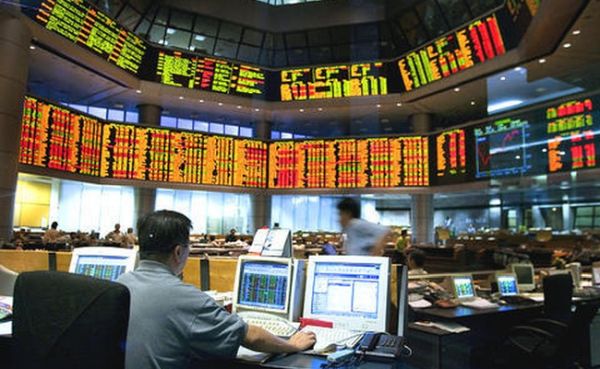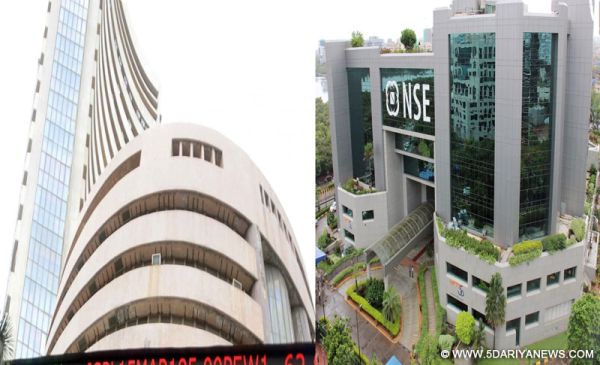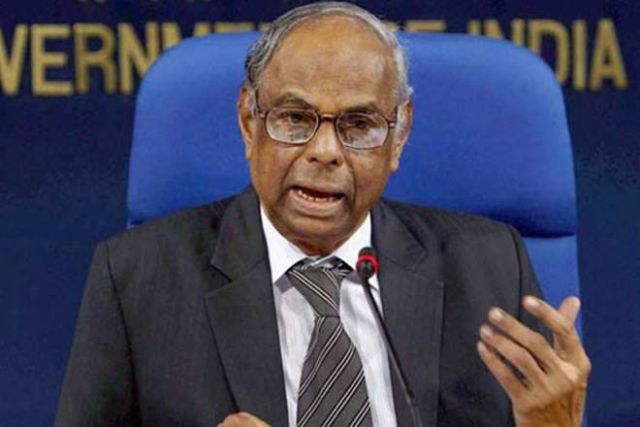
by admin | May 25, 2021 | Muslim World
 Amman : The Joint Jordanian-Palestinian Higher Committee’s preparatory panel held a meeting in Amman, which was headed by Minister of Industry, Trade and Supply Yarub Qudah and Palestinian Economy Minister Abeer Odeh to discuss prospects for cementing economic ties between the two sides.
Amman : The Joint Jordanian-Palestinian Higher Committee’s preparatory panel held a meeting in Amman, which was headed by Minister of Industry, Trade and Supply Yarub Qudah and Palestinian Economy Minister Abeer Odeh to discuss prospects for cementing economic ties between the two sides.
The meeting which took place on Tuesday endorsed the agenda of a meeting of the higher committee, which is due to be held on Wednesday and will be co-chaired by Prime Minister Hani Mulki and his Palestinian Counterpart Rami Al Hamdallah.
Qudah said the encounters came three years after a meeting of the higher committee, a delay which was due to the tough conditions the Palestinians were facing as a result of Israeli-imposed obstacles. However, he added, other bilateral meetings were ongoing at various levels to develop cooperation in all fields.
He expressed hope the meetings would remove trade barriers and find mechanisms to solve such impediments to enhance the private sector’s role in trade exchange and launch joint ventures.
—SM/IINA

by admin | May 25, 2021 | Muslim World
 Amman : The Joint Jordanian-Palestinian Higher Committee opened its technical meetings in Amman on Sunday to look into prospects to enhance economic relations between the two sides.
Amman : The Joint Jordanian-Palestinian Higher Committee opened its technical meetings in Amman on Sunday to look into prospects to enhance economic relations between the two sides.
The preparatory committee’s meetings, held at the ministry of industry and trade, were co-chaired by the Ministry’s Secretary General Yousef Al Shamayleh and Chief Executive Officer of the Palestinian General Authority for Industrial Cities and Free Zones Ali Shaath.
Al Shamayleh referred to the “modest” trade exchange between the two countries, which he attributed to measures and restrictions imposed by Israel on the Palestinian economy.
Extricating the Palestinian economy from the Israeli control will only be possible through enhancing economic and trade ties between Jordan and Palestine, he pointed out.
According to the secretary general, the trade exchange between the two sides rose by 14 percent standing at $178 million in 2016, compared to $156 million in 2015, Petra reported.
Al Shamayleh highlighted the need to strengthen economic ties and activate agreements signed between the two sides “in the interest of their peoples”. “Work is underway to complete requirements to establish the Jordanian-Palestinian free logistical zone that aims to strengthen trade exchange and increase transit of Palestinian goods via Jordan,” he added.
Shaath, for his part, stressed the importance of boosting Jordanian-Palestinian cooperation, mainly in the economic and trade fields, as well as activating work of joint committees to achieve this objective.
—SM/IINA

by admin | May 25, 2021 | Economy, Markets, News
 By Rohit Vaid,
By Rohit Vaid,
Mumbai : Expectations of an economic stimulus package, along with derivatives expiry and movement of foreign funds, are expected to drive equity investors’ sentiment next week.
According to market observers, other major factors, such as the government’s plans to recapitalise public sector banks and a volatile geo-political situation in the Korean Peninsula will also influence market movements.
“Markets’ sentiment next week would be dominated by what the government offers as stimulus to the economy, especially how it balances the goals of pump-priming the economy yet keeping inflation and fiscal deficit under control,” said Devendra Nevgi, Chief Executive, Zyfin Advisors.
“Global markets and the situation in North Korea will be closely watched.”
Apart from global geo-political issues, derivatives expiry on September 28, Thursday, and likely outflows of foreign funds will be other major themes for the week ahead, experts opined.
“Markets are likely to remain volatile in the next week ahead of the expiry of September derivative contracts as traders roll over positions to the October 2017 series,” D.K. Aggarwal, Chairman and Managing Director, SMC Investments and Advisors, told IANS.
“Nifty is expected to move in the range of 9,900-10,150 levels in the next week.”
In terms of investments, provisional figures from the stock exchanges showed that foreign institutional investors (FIIs) continued with their selling spree and off-loaded stocks worth Rs 5,448.66 crore during the week ended September 22.
Figures from the National Securities Depository Ltd (NSDL) revealed that foreign portfolio investors (FPIs) divested equities worth Rs 3,911.21 crore during September 18-22.
However, domestic institutional investors (DII) bought scrips worth Rs 3,581.88 crore.
“Though DIIs flows are very strong, but any earnings hiccups in coming quarters may limit these inflows,” said Vinod Nair, Head of Research, Geojit Financial Services.
“Going ahead, the markets will look for more cues from government on its stimulus programme and road map on fiscal deficit. Any sharp depreciation of INR will heighten the FIIs outflow.”
On a weekly basis, the Indian rupee had weakened by 72 paise to close on last Friday at 64.80 to a US dollar from its previous week’s close at 64.08.
In addition, investors will take further cues from macro-economic data points like the Index of ECI (eight core industries) for August 2017, external debt and the country’s fiscal deficit which will be released next week.
As per technical analysis, on a downside, the Nifty is expected to further consolidate towards its next support level of 9,861 points.
“Traders will need to watch if the Nifty can now hold above support (level of 9,950 points) early next week; else a further correction is likely towards the next supports of 9,861 points,” elaborated Deepak Jasani, Head of Retail Research for HDFC Securities.
“On an up-move, 10,000-10,040 points band can provide resistance.”
Last week, subdued macro-economic sentiment, coupled with rising tensions in the Korean peninsula dragged the two key indices — the BSE Sensex and the NSE Nifty — below their psychologically important levels of 32,000-points and 10,000-points, respectively.
Consequently, the 30-scrip Sensitive Index (Sensex) of the BSE declined by 350.17 points or 1.09 per cent to 31,922.44 points.
Similarly, the Nifty 50 of the National Stock Exchange (NSE) edged lower to 9,964.40 points, down 150.6 points or 1.19 per cent.
(Rohit Vaid can be contacted at rohit.v@ians.in)
—IANS

by admin | May 25, 2021 | Economy, Markets, News
 By Rohit Vaid,
By Rohit Vaid,
Mumbai : Subdued macro-economic sentiment, coupled with rising geo-political tensions in the Korean Peninsula and continuous outflows of foreign funds dragged the key Indian equity markets in the red last week.
Consequently, the two key indices — the BSE Sensex and the NSE Nifty — receded below their psychologically important levels of 32,000-points and 10,000-points as investors were spooked over a possibility of government exceeding its fiscal deficit target to stimulate the economy.
On a weekly basis, the 30-scrip Sensitive Index (Sensex) of the BSE declined by 350.17 points or 1.09 per cent to 31,922.44 points.
Similarly, the Nifty 50 of the National Stock Exchange (NSE) edged lower to 9,964.40 points, down 150.6 points or 1.19 per cent.
According to Dhruv Desai, Director and Chief Operating Officer of Tradebulls, rising geo-political tension eroded investors’ risk-taking appetite and subdued global and domestic markets.
“Geo-political tensions, continue to take centre stage, as things have gone from bad to worse,” Desai said.
Besides geo-political tensions, FOMC (Federal Open Market Committee) minutes dampened investors’ sentiments. The US Fed has indicated that there will be one rate hike in December 2017 and three in 2018.
A likely US rate hike can potentially drive away foreign portfolio investors (FPIs) from emerging markets such as India.
“Domestic markets became nervous after the US Federal Reserve outlined plans to unwind its $4.2 trillion balance sheet starting next month,” D.K. Aggarwal, Chairman and Managing Director, SMC Investments and Advisors, told IANS.
“The domestic currency hit 65 levels against the US dollar for the first time in more than five months on the back of speculation about the government going in for a fiscal deficit relaxation, with talk of a Rs 40,000-Rs 50,000 crore stimulus.”
Provisional figures from the stock exchanges showed that FIIs continued with their selling spree and off-loaded stocks worth Rs 5,448.66 crore during the week.
However, domestic institutional investors bought scrip worth Rs 3,581.88 crore.
Figures from the National Securities Depository (NSDL) revealed that foreign portfolio investors (FPIs) divested equities worth Rs 3,911.21 crore, or $354.46 million, during September 18-22.
On the currency front, the Indian rupee weakened by 72 paise to close the week at 64.80 to a US dollar from its previous week’s close at 64.08.
Market observers added that liquidity was redirected from equities to insurance IPOs of ICICI Lombard and SBI Life.
“During the week Insurance IPOs of ICICI Lombard and SBI Life sucked some liquidity from markets, FII flows remained negative… Indian rupee became weak against the US dollar along with most of Asian currencies,” said Anita Gandhi, Whole Time Director at Arihant Capital Markets.
“Macro factors like fiscal deficit, CAD, inflation and new employment generation indicated weakness.”
(Rohit Vaid can be contacted at rohit.v@ians.in)
—IANS

by admin | May 25, 2021 | Banking, Business Summit, Commodities, Commodities News, Commodity Market, Economy, Events, Finance, Investing, Markets, News, Politics

Former RBI Governor C. Rangarajan
New Delhi : Former Reserve Bank of India Governor C. Rangarajan on Friday said the package the government is looking at to revive the economy should be partly to raise capital expenditure and look at problems preventing private investments from rising.
“The package in my opinion should be partly to raise capital expenditure of the government, but suited in a way in which it will stimulate private investments,” he told reporters on the sidelines of the 10th International Gold Summit by Assocham.
He said the fall in growth rate was also accompanied by a fall in investment rate.
“More critically, it is the private investment rate that has fallen. In fact public expenditure on capital has shown some slight rise. Therefore, the most important thing is to address the problems that may be preventing private investment from rising,” Rangarajan said.
He suggested that two things can be done. “There are a number of stalled projects. The low hanging fruit is to ensure that these stalled projects are activated. Secondly, the banking system needs to be recapitalised so that it can provide additional credit for investment as well.”
—IANS

 Amman : The Joint Jordanian-Palestinian Higher Committee’s preparatory panel held a meeting in Amman, which was headed by Minister of Industry, Trade and Supply Yarub Qudah and Palestinian Economy Minister Abeer Odeh to discuss prospects for cementing economic ties between the two sides.
Amman : The Joint Jordanian-Palestinian Higher Committee’s preparatory panel held a meeting in Amman, which was headed by Minister of Industry, Trade and Supply Yarub Qudah and Palestinian Economy Minister Abeer Odeh to discuss prospects for cementing economic ties between the two sides.



